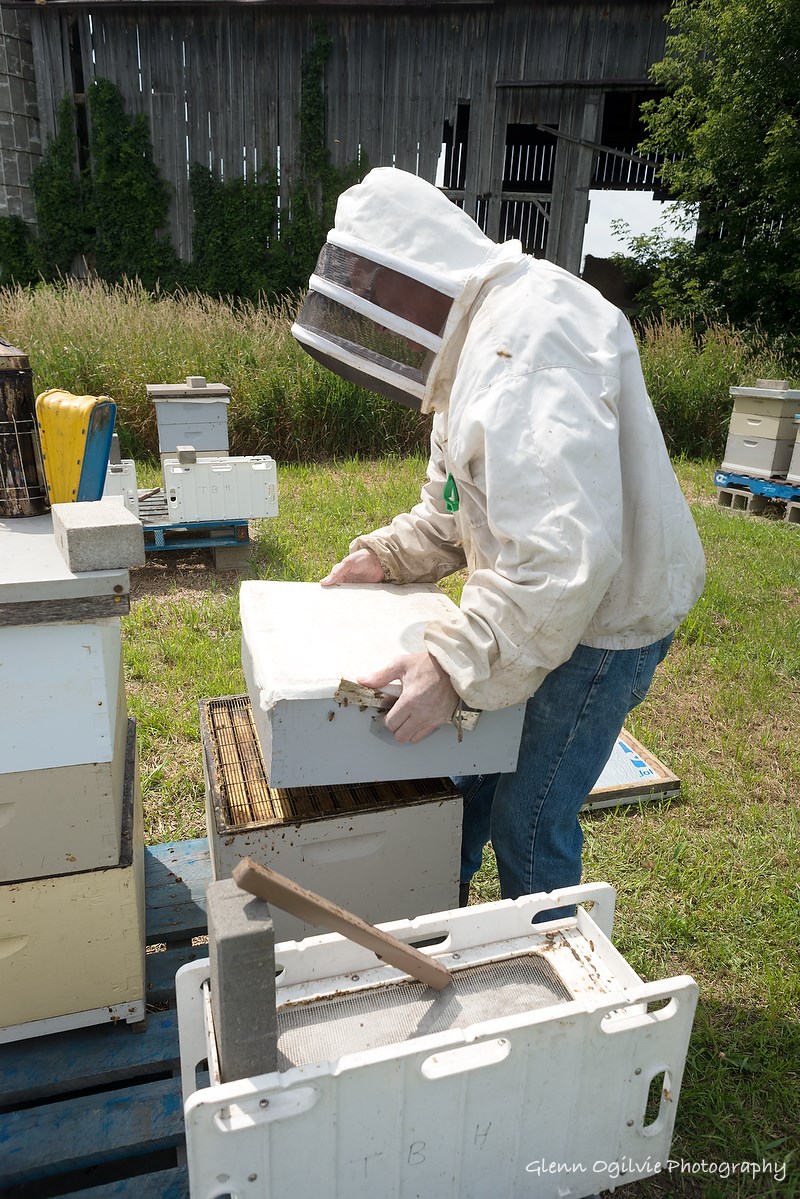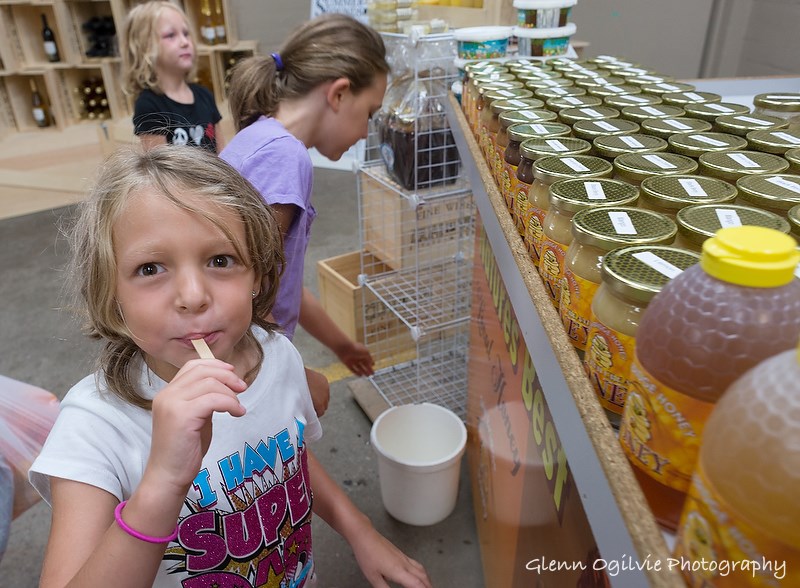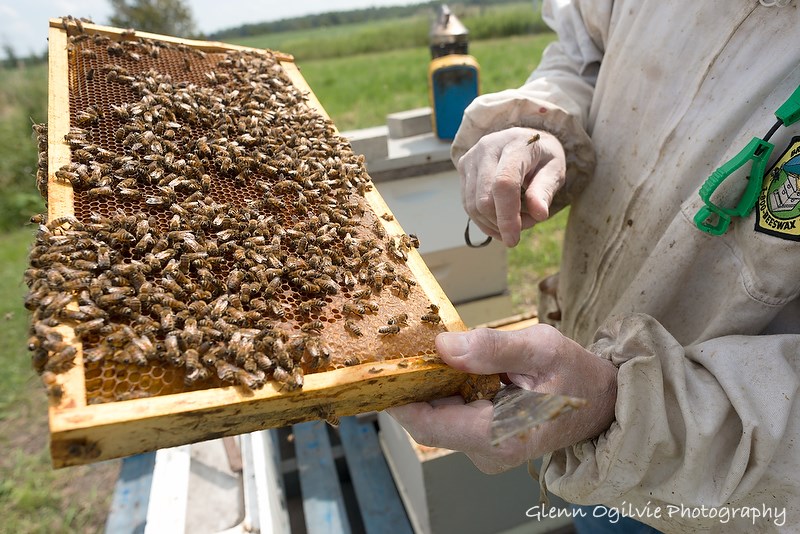Sarnia beekeeper Ray Heeringa lost 80% of his bees last winter, and he believes he knows why.
Heeringa points to a growing body of research that highlights the environmental threat posed by neonicotinoid pesticides, which are now the dominant insecticide in everything from planted corn and soybeans to pet flea collars.
“Beekeepers are looking at their hives and they know something is going on, but the science hasn’t caught up to them yet,” said Heeringa, while selling honey at the Sarnia Farmers’ Market.
Crop seeds coated with neonics were introduced in Canada about a decade ago. Europe banned the pesticides last year and the U.S. Environmental Protection Agency is currently reviewing their use.
Farmers, meanwhile, are widely planting the treated seeds and unwittingly placing at risk the pollinators that pollinate fruits and vegetables, said Heeringa, a retired Sarnia firefighter who keeps 50 hives in two locations.
“Bees have poor immune systems, so they really are the canary in the coal mine that is our environment. I’m convinced (neonicotinoids) have to be banned.”
Ontario’s beekeepers lost 58% of their bees last winter, which the Canadian Association of Professional Apiculturists said is well above the 15% loss in a typical winter.
In fact, it was the worst die-off ever in Ontario, the Ministry of Agriculture and Rural Affairs said.
A recent association report cites three possible causes: starvation from a hard winter, parasites and pesticide exposure.
Heeringa said mites are a problem, and colonies already stressed by the parasites are eating contaminated pollen, which is the “bread” of the hive, he said.
“We can manage the other stuff but the (pesticides) are the tipping point,” said Heeringa, who has learned to raise his own queen bees.
Despite the recent losses, he intends to stick with beekeeping because the bees themselves are fascinating, and as a retiree he doesn’t “couch” well, he said.
“I do have hope that things will change. But it’s going to take bold politicians making some hard choices.”
- George Mathewson


